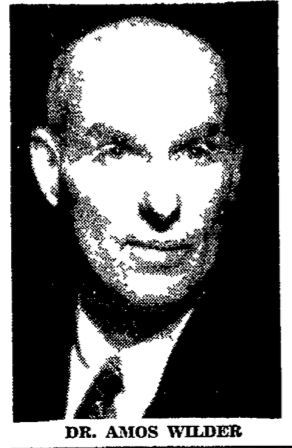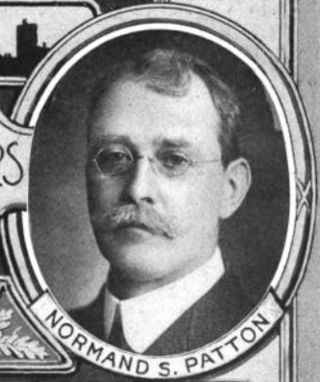Related Research Articles

Roger Wolcott Sperry was an American neuropsychologist, neurobiologist, cognitive neuroscientist, and Nobel laureate who, together with David Hunter Hubel and Torsten Nils Wiesel, won the 1981 Nobel Prize in Physiology and Medicine for his work with split-brain research. A Review of General Psychology survey, published in 2002, ranked Sperry as the 44th most cited psychologist of the 20th century.

George Foot Moore was an American historian of religion, author, professor, and Presbyterian minister.
The Treaty of Küçük Kaynarca, formerly often written Kuchuk-Kainarji, was a peace treaty signed on 21 July 1774, in Küçük Kaynarca between the Russian Empire and the Ottoman Empire, ending the Russo-Turkish War of 1768–74 with many concessions to Russia. The concessions to Russia are not merely territorial; not only are the territories of Romania and Crimea Khanate ceded, Russia also gains the right to construct a Greek Orthodox Church in Istanbul, claiming itself to be the protector of the Greek Orthodox Ottoman community, as a pretext for frequent and numerous interventions in the decades to follow. Ottoman Christians started to feel more empowered as European and Christian powers demonstrated their rising influence and political power. Access to Europe's political networks, markets and educational institutions created a class privilege for Ottoman Christians, and scholars often regard the treaty as turning point for relations between Ottoman Christians and the European nations.

Sir Frederick Pollock, 3rd Baronet PC, FBA was an English jurist best known for his History of English Law before the Time of Edward I, written with F.W. Maitland, and his lifelong correspondence with US Supreme Court Justice Oliver Wendell Holmes. He was a member of the Cambridge Apostles.

Edmund Burke Fairfield was an American minister, educator and politician from the U.S. state of Michigan. He served as the 12th lieutenant governor of Michigan and as the second Chancellor of the University of Nebraska.

Rev. Charles Franklin Thwing was an American clergyman and educator.

The Yale Bulldogs are the intercollegiate athletic teams that represent Yale University, located in New Haven, Connecticut. The school sponsors 35 varsity sports. The school has won two NCAA national championships in women's fencing, four in men's swimming and diving, 21 in men's golf, one in men's hockey, one in men's lacrosse, and 16 in sailing.
Francis Steegmuller was an American biographer, translator and fiction writer, who was known chiefly as a Flaubert scholar.
Geoffrey Blodgett was Robert S. Danforth Professor of History at Oberlin College, located in Oberlin, Ohio.

William Richards Castle was a lawyer and politician in the Kingdom of Hawaii and Republic of Hawaii.

Mark Antony De Wolfe Howe Jr. was an American editor, author, and the recipient of the 1925 Pulitzer Prize for Biography or Autobiography.

William Mackintire Salter was the author of several books on philosophy and a critical and enduring major classic on Nietzsche. He was also a special lecturer for the Department of Philosophy in the University of Chicago and a pioneer in the Ethical movement.

Amos Niven Wilder was an American poet, minister, and theology professor.

Normand Smith Patton was an American architect based in Chicago, Illinois and Washington, D.C.
Giovanni Maria Angiolello was a Venetian traveller, author of an important historical report on the Aq Qoyunlu and early Safavid Persia.

A katib is a writer, scribe, or secretary in the Arabic-speaking world, Persian World, and other Islamic areas as far as the Indian subcontinent. In North Africa, the local pronunciation of the term also causes it to be written ketib. Duties comprised reading and writing correspondence, issue instructions at the command of the person in charge and archiving documentation.
Ottoman studies is an interdisciplinary branch of the humanities that addresses the history, culture, costumes, religion, art, such as literature and music, science, economy, and politics of the Ottoman Empire. It is a sub-category of Oriental studies and Middle Eastern studies, and also Turkish studies.

Edward Dana Durand (1871–1960) was the Director of the United States Census Bureau from 1909-1913 under President William Howard Taft, and a chief economist for the Department of Commerce. He also taught at Harvard and Stanford.
Rollo Walter Brown was an American writer and teacher of rhetoric.

Alvenia Barnette Miller was an American writer and educator. She taught history at Wellesley College, and wrote mostly about Turkey, including a book, Beyond the Sublime Porte (1931). She left over $100,000 to Wellesley College in her will.
References
- ↑ Lybyer, Albert Howe, Paper, 1876-1949 [ permanent dead link ]
- ↑ Miller, Barnette (1931). "Author's Preface". Beyond the Sublime Porte: The Grand Seraglio of Stambul (1970 printing ed.). New York: AMS Press. p. xvii.
- ↑ "Archived copy" (PDF). Archived from the original (PDF) on 2020-09-23. Retrieved 2019-11-29.
{{cite web}}: CS1 maint: archived copy as title (link)